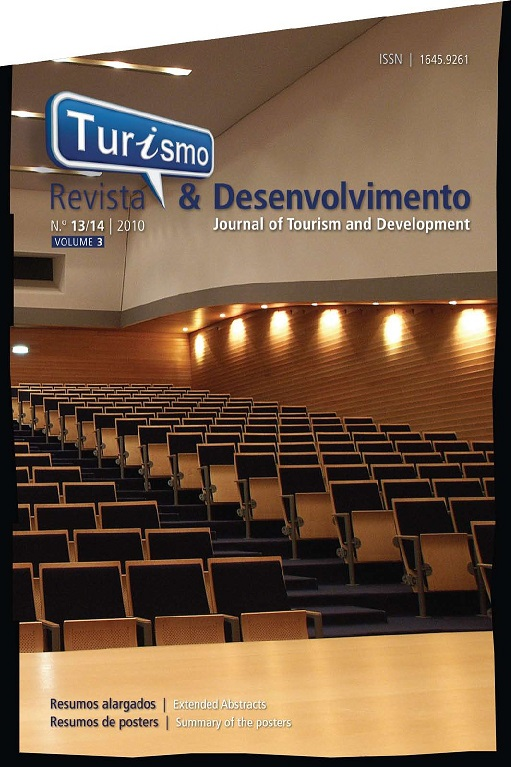The importance of tourism for the survival and development of small historical towns
Resumo
Objectives | The main purpose is to analyze the role of tourism in the economic and functional organization of small historical towns. The survival and development of these towns are very important in many European countries because a significant proportion of the population lives in these places.Within Europe, Italy is the country of small towns for excellence: about half of the population (47.3%) live in cities with less than 20,000 inhabitants. The aim is to show that tourism can play a major role in the preservation and development of small towns because their tourist magnetism tends to grow over time; magnetism founded on several factors: history and culture, landscape and environment, urban morphology and architecture, festivals and crafts. And the preservation of these sites helps to save the landscape, the collective memory and the local and national identity.
Methodology | The paper is a result of a research that was organized into three steps:
1) First of all, a critical evaluation of the legislation and of intervention strategies that, at all the levels (European, national and local), have been developed to support (directly or indirectly) tourism and economic development in small towns. This assessment was based on the literature and on processing the existing data to arrive at a taxonomy of touristic centers on the base of the local resources used (tangible or intangible, environment or culture and so on);
2) In a second step, an assessment of the needs and potentialities of different “tourisms” in small historical centres through a set of case studies. Tourisms in the sense that, in some towns, the tourism flows are attracted by environmental resources in other by cultural or “wine and food” resources and so on. For each typology of touristic centre, it was identified a “theoretical” model of functioning of the entire urban economy and the needs in terms of infrastructures, services, etc. These models have been empirically tested with reference to some Italian case studies;
3) At the end, the strengths and weaknesses of public policies have been identified to propose innovations to increase their effectiveness. The goal is to make more targeted interventions, and, consequently, to reduce the risk of failure.
Main results and contributions | The first obtained result was the identification of the strategic variables (economic and infrastructural) essentials to give more effectively to sectoral policies. These policies must take account of the fact that there is a plurality of tourisms that depend on the specific nature of the relationship between the centers and their local context (resources,services, infrastructures, etc.). The research started from the policies to return to the policies, proposing their adjustments and enrichment for the future in relation to:
– Contexts (the relationship between small towns and their environment) and networks (the necessity to create territorial networks of small towns to increase their potentialities of development and to reduce the policies costs);
– Models of operation of different tourisms to identify, first theoretically and then empirically, strengths and weaknesses in light of the dynamics that characterize the local and global economy;
– Potentiality. Starting from the strengths and weaknesses of each operational model, it was possible to categorize, through the application of a benchmark methodology, the development potentiality of every class of small towns;
– Needs. The research allowed - through a comparison between potentiality and points of force and weakness of each class – of determining the specific needs (in terms of human, social, physical and technological capital) of the different groups of towns thus to transform them in a territorial competitive.
Limitations | The scarcity of available data obliges to resort to the method of case studies that clearly depends heavily on the researcher’s vision but often can not be refuted by empirical evidence.
Conclusions | Tourism could have a more relevant impact in the revitalization of small towns helping to solve various problems. It could help to give answers to the processes of urban sprawl making these centers vitals and thus helping to maintain or increase their resident population. An increase of infrastructures and services for tourism (for instance, accessibility and information) could support the transformation of small towns into a privileged place for the residential settlement (especially for the people who attach great importance to environmental variables) and for the location of new productive activities that are additive and not in contrast with traditional functions (agriculture). A policy of revitalization of small towns could give a significant help to the growth of the national GDP. The quality of territorial contexts of many of the smaller centers could assign new functions to these places, transforming them, for instance, into tourist resorts and, in this way, enriching the Italian tourist product. At this “chaotic” stage of world economy, it is necessary to rethink and reshape the forms and instruments of the public and private interventions in the small historical centers. The existence of tourism policies can help to transform the development potentialities of these places in a socially balanced and economically viable local growth process.





